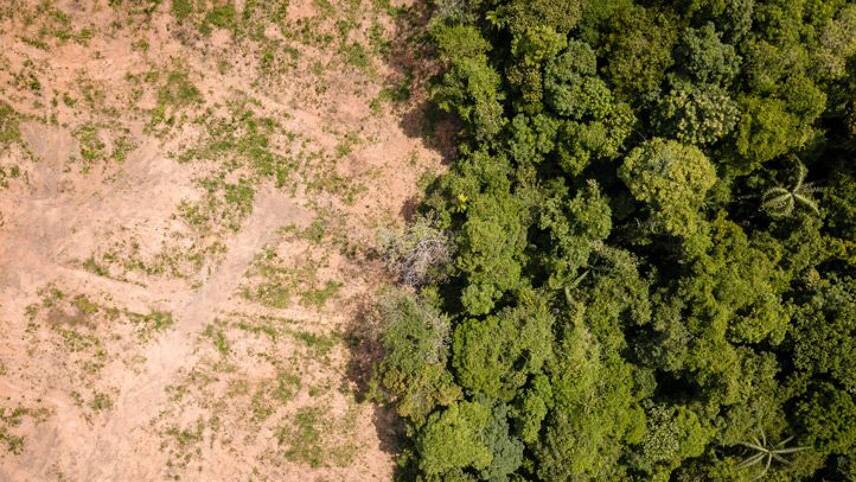Register for free and continue reading
Join our growing army of changemakers and get unlimited access to our premium content

Research suggests that 3.6m hectares of tropical forest were cleared in 2018 – equivalent to the size of Belgium
A new report from Dutch non-profit IDH has found that there is “urgent need” to transition the European food sector to zero-deforestation through pledges to source commodities such as timber, palm oil and soy through sustainable production.
The report found that just 37% of soy and 42.5% of tropical timber imports were responsibly sourced in the UK in 2017, although the figures are well above the European averages of 22% for soy and 28.5% for tropical timber.
“Current progress is evidently not enough. Europe is dangerously behind when it comes to meeting its responsible sourcing and no-deforestation pledges. We need urgent action from industry players and governments to jointly fight deforestation in supply chains while securing economic development and livelihoods in producing countries,” IDH’s director of Landscape Program Daan Wensing said.
“Forest loss is continuing at an alarming rate. The good news is that we have the partners and tools to fight it, and that when pooling Europe’s demand for sustainable commodities into hotspot regions, the trends can be reversed. Commitments matter but stopping global deforestation and climate change will take more than just words – together, we need to turn pledges into action.”
Research from Global Forest Watch (GFW) suggests that 3.6m hectares of tropical forest were cleared in 2018 – equivalent to the size of Belgium. Data found that up to 80% of this loss was driven by agricultural commodity production.
Can’t see the forest for the trees
Deforestation is intrinsically linked to the acceleration of climate change. The UN states that forest protection and restoration could account for 30% of the solutions need to mitigate climate change. In response, the ‘New York Declaration on Forests’ was endorsed in 2014 by the US, the EU and multinationals from the food, paper, finance and other industries. The declaration pledges to halve the rate of deforestation by 2020 and eradicate the issue completely by 2030.
The IDH report notes that European nations are well behind rates required to halt deforestation. Nations are performing best on sourcing palm oil – which is a huge driver of deforestation and has sparked high-profile consumer debates, notably based on Iceland and Greenpeace’s work.
In the UK, 75% of palm oil used in food was certified as sustainable, above the European average of 74%. Year-on-year progress to improve palm oil sourcing has also slowed, according to the report. In contrast demand for sustainable soy is non-existent in nations such as Italy, Portugal and Spain, despite the commodity’s linked to wide-scale deforestation and land degradation in areas like the Amazon rainforest. For cocoa, of which Europe is the biggest importer, just 30% was certified worldwide.
Research from CDP warns that the business community is risking up to $941bn on commodities linked to deforestation, with just 13% of companies that responded to a disclosure request making time-bound pledges to zero-deforestation.
Matt Mace


Please login or Register to leave a comment.